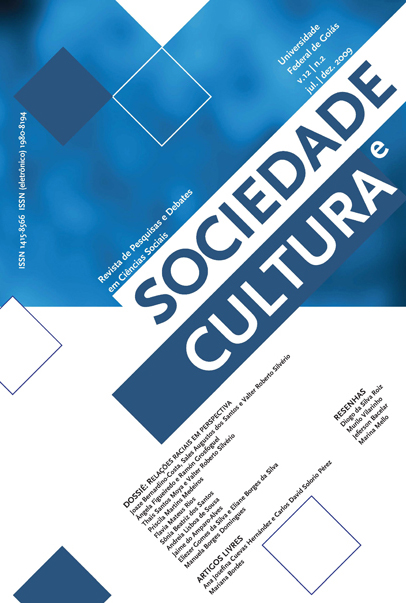Race and gender intersections: the struggle for including the African diasporic perspective in the educational system in Brazil
DOI:
https://doi.org/10.5216/sec.v12i2.9103Keywords:
African diaspora, education and racial relations, gender, curriculum, inequalityAbstract
This article focuses on the challenges of utilizing an African diasporic approach in the field of education in Brazil. The study seeks to offer a historical overview of the contextof law 10639/03 and the National Curriculum Guidelines that regulate the teaching of history and African and Afro-Brazilian culture. Subsequently, race and gender relations will be discussed within this context, seeking to critique the preponderance of a malecentered perspective within the educational field in the country. Lastly, the article also aims at emphasizing the role played by the Black Diasporic Movement in the development of the Brazilian curriculum concerning issues of inequality.Downloads
Download data is not yet available.
Downloads
Published
2010-03-18
How to Cite
SOUSA, ANDREIA LISBOA DE. Race and gender intersections: the struggle for including the African diasporic perspective in the educational system in Brazil. Sociedade e Cultura, Goiânia, v. 12, n. 2, p. 289–300, 2010. DOI: 10.5216/sec.v12i2.9103. Disponível em: https://revistas.ufg.br/fcs/article/view/9103. Acesso em: 19 feb. 2026.
Issue
Section
Thematic Dossier
License
Authors who publish in this journal agree to the following terms:
- Authors retain the copyright and grant the journal the right of first publication, the work being simultaneously licensed under the Creative Commons Attribution License, which allows the sharing of the work with acknowledgment of authorship and of the initial publication in this journal;
- Authors are authorized to enter into additional contracts separately, for non-exclusive distribution of the version of the work published in this journal (eg, publishing in an institutional repository or as a book chapter), with acknowledgment of authorship and of the initial publication in this journal;
- Authors are allowed and encouraged to post and distribute their work online (eg, in institutional repositories or on their personal page) at any point before or during the editorial process, as this can bring productive change as well as increases the impact and the citation of the published work (see O Efeito do Acesso Livre).



